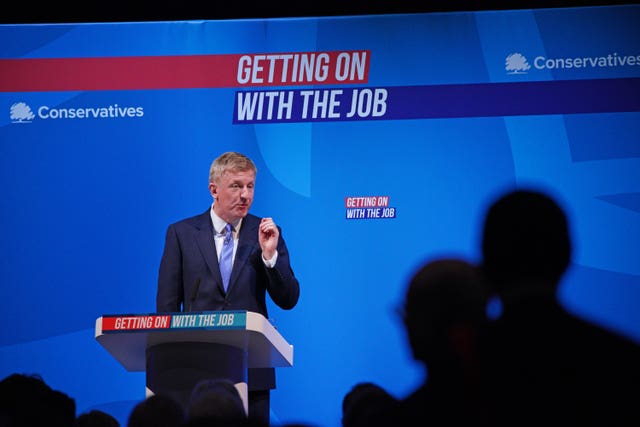Brexit Minister Jacob Rees-Mogg has dismissed the row over lockdown parties in Downing Street as trivial “fluff”.
Boris Johnson was facing calls to resign earlier this year over his attendance at a series of events being investigated by police for alleged breaches of Covid regulations.
But speaking at the Conservative Spring Conference in Blackpool, Mr Rees-Mogg said the current crisis over Ukraine showed that “partygate” was not a fundamentally serious issue.
“It is a reminder that the world is serious, that there are serious things to be discussed and serious decisions for politicians to take,” he said, during a live recording of the Moggcast podcast.
“Whether this is about re-opening and having new licences for oil wells in the North Sea, or whether it is about getting away from the ‘wokery’ that has beset huge sections of society, nobody now cares whether using the word ‘grip’ is going to offend people.

“All that nonsense is shown for the trivial nature of it…. I’d say the same of ‘partygate’, all of that is shown up for the disproportionate fluff of politics that it was rather than something of fundamental seriousness about the safety of the world and the established global order.”
Conservative Party chairman Oliver Dowden did not appear to share Mr Rees-Mogg’s view, saying any suggestion of wrongdoing by politicians needed to be “taken seriously” amid claims of potential lockdown breaches in Downing Street.
Speaking to reporters at a Blackpool tram depot during his party’s spring conference, Mr Dowden said: “I’ve always felt it is incumbent on politicians who set the rules to abide by the rules.
“Therefore I think any allegations that politicians have not done so should be taken seriously.
“However, I would say both that there is this ongoing police investigation, we’ve had the interim Sue Gray report and the Prime Minister has similarly expressed remorse at how these kind of events could have happened.
“I think that’s right to do so, so I don’t dismiss them.”




Comments: Our rules
We want our comments to be a lively and valuable part of our community - a place where readers can debate and engage with the most important local issues. The ability to comment on our stories is a privilege, not a right, however, and that privilege may be withdrawn if it is abused or misused.
Please report any comments that break our rules.
Read the rules here